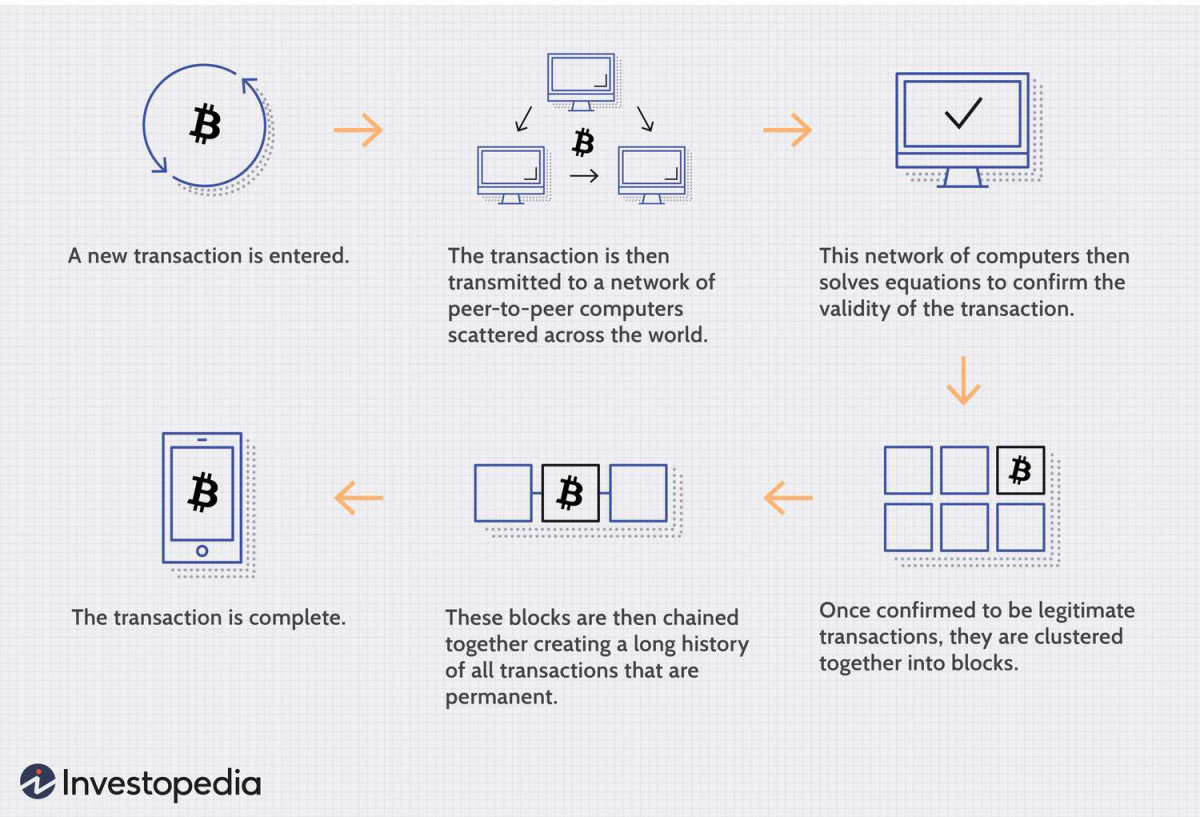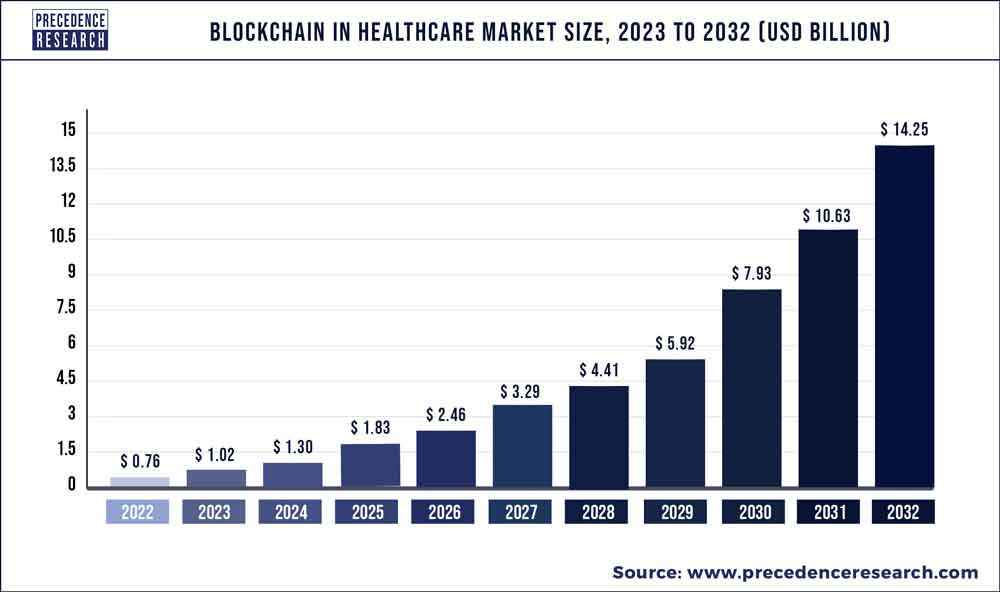Blockchain for Healthcare: How to Enhance Data Privacy and Security in Patient Information Transfers


In Brief
Discover how blockchain technology is revolutionizing healthcare by enhancing data privacy, securing patient information, and ensuring compliance.

You’ve likely heard about the word blockchain by now. It’s usually tied to the world of finance and cryptocurrency. There aren’t a lot of similarities between healthcare and cryptocurrencies, but blockchain can be implemented in both industries.
Once you grasp the fundamental concepts of blockchain, it’s easy to understand how this technology can revolutionize data privacy in healthcare. Blockchain applications in medicine are becoming more common, and we could see it becoming an industry standard.
This article discusses the benefits of blockchain for healthcare and how it could protect your institution or business.
What’s blockchain?
Blockchain is a form of database, which is why it’s beneficial for storing data. However, a more precise definition is that blockchain is a distributed and decentralized ledger. The data is distributed across multiple nodes, which can be computers.
Blockchain technology usually doesn’t have a central authority. All transactions and data transfers are recorded on this ledger, and there’s no way of altering or reversing them. This is what makes blockchain extremely secure.

Photo: Investopedia
Blockchain and medical records are paired well because they require a high level of data integrity and security.
The first generation of blockchain was focused on revolutionizing finance, but it took years of innovations until we started seeing applications in other industries.
Blockchain technology solves automated claim authentication and public health management, making it incredibly useful in healthcare. On the patient’s or client’s side, blockchain helps with sharing and ownership issues.
How does blockchain technology in healthcare help?
Immutability, traceability, and efficiency are some of blockchain’s key benefits. Businesses in many industries desire these traits, but healthcare finds them essential.
For example, a patient is moving to a new location, and the institution’s staff must move their medical records. Physical documents need to remain secure through the transition. Blockchain digital health processes ensure that patient records are shared across institutions and doctors in a secure and compliant way.
Laboratory and imaging results are prone to being exposed or sent to the wrong recipients. Therefore, it is essential to implement high-security measures and train all personnel who come in contact with this type of material. Even when incorporating new travel CT technicians who will not be part of the team for long.
In addition to training and educating your staff appropriately, it is necessary to implement strategies such as requiring strong passwords, limiting access to unnecessary information, and using specific channels.
Another application of blockchain in healthcare is drug traceability. This provides everyone involved in the supply chain, up to the clerk who works at a pharmacy, with assurance that drugs come to the right individual. Furthermore, it prevents counterfeit medication from reaching shelves.
Security benefits of blockchain
As mentioned, blockchain guarantees high levels of data integrity because of its immutability. However, blockchain projects also offer many more security benefits.
There isn’t a single device in the blockchain network that could be compromised, leading to a failure. The blockchain patient records are stored decentralized, reducing the potential attack surface.
Furthermore, the data and traffic on the blockchain are encrypted using protocols of the highest security standards. Robust algorithms such as elliptic curve cryptography (ECC) and advanced encryption algorithm (AEC) make data encryption and decryption extraordinarily secure and quick.
However, there’s also a lot that you can do to make your business more secure. Some institutions are exploring innovative authentication approaches, such as magic links, to minimize the chances of unauthorized access to employee and patient accounts.
There are also a dozen services that can help you understand your company’s weaknesses. You can use breach and attack simulation techniques to ensure the company’s data security measures are up-to-date and guarantee patient privacy.
The goal is to ensure that your sensitive information stays private and you can easily focus on your well-being.
Situations in which blockchain can be essential
Transferring data across the country is complicated enough. With physical folders, a lot can happen. They can get destroyed, stolen, altered, etc. Blockchain helps with transfers inside a particular country as well as with cross-border transfers.
Not only is this extremely practical and quick, but the chances that someone who isn’t supposed to see the data are minimized. Let’s say a notable politician from your country travels abroad for health purposes.
The individuals who oppose them get information on their whereabouts and target the institution’s systems with a brute-force attack. Because of their decentralized nature, blockchain electronic medical records are much less likely to fall victim to such attacks.
Similarly to patient transfers, blockchain systems transfer employee data quickly and adequately handle their permissions.
Furthermore, blockchain encrypts and stores data on medication each patient takes or actively takes. When delivering Zepbound prescriptions, for example, it’s important to comply with the Health Insurance Portability and Accountability Act (HIPAA) standards. These help protect patient health information and avoid any legal consequences.
Compliance regulations
Since the European Union adopted the General Data Protection Regulation (GDPR), many countries and companies have started taking data privacy more seriously. This document has led to the adoption of several regulations worldwide.
They all aim to protect the customer, their privacy, and their data. However, the data generated and collected by healthcare institutions require extra attention. Health data is considered protected health information (PHI), distinct from other types of user data.
This is because PHI can be exploited and misused in many more ways than your name, last name, and address. Blockchain is an important technology that could protect PHI and ensure compliance in your healthcare business.
While blockchain and health pair well, your employees must also be trained in compliance. With the latest compliance training software, this can be done efficiently. However, there are still many safety considerations, starting with who is implementing blockchain in your system.
Ensuring compliance is one thing, but you’ll also have to keep up with the latest updates. This can require having a law team that collaborates with your engineers and ensures that your blockchain network and overall company are still compliant.
Compliance regulations are also dependable on the location where your business and patients are based.
Implementing blockchain in healthcare
If you’re a healthcare company with specific clients, switching to a combination of blockchain and medicine will require individuals with technical knowledge.
This includes understanding APIs, which play a crucial role in healthcare data privacy and security, enabling the secure transfer of patient information between systems. However, if not properly secured, APIs can expose vulnerabilities, potentially leading to data breaches.
APIs play a crucial role in healthcare data privacy and security, enabling the secure transfer of patient information between systems. However, if not properly secured, APIs can expose vulnerabilities, potentially leading to data breaches.
To mitigate risks when implementing blockchain for hospitals, healthcare organizations can utilize API management platforms like Apigee, Tyk, Kong, and Mulesoft. These platforms provide comprehensive tools for securing and maintaining APIs, offering features like access control, encryption, and threat protection.
When selecting a platform, healthcare companies should thoroughly compare their options. For instance, comparing Apigee vs. Kong requires assessing factors like scalability, security features, and integration capabilities to choose the best fit for their specific needs.
Challenges that blockchain implementation faces

Photo: Precedence Research
Blockchain in healthcare today isn’t as present as other technologies, such as AI, in this industry. However, dozens of businesses are using this technology, at least to some degree. Blockchain is still a word that’s usually used for hype.
But, when it’s implemented, there are many security benefits comparable with only a few technologies. So, the main challenge is recognizing blockchain’s value and improving the reputation of this technology.
With examples of practical implementations of blockchain for healthcare, there are a lot of ways in which such projects can be promoted. In these few examples, blockchain’s impact on healthcare has proven favorable.
Another critical challenge is the need for more knowledgeable personnel in blockchain and the healthcare industry. Few experts are experienced with blockchain in the health industry, and their services are expensive.
Blockchain is transforming healthcare and patient privacy
As mentioned, it took blockchain decades to get to where we are now. Furthermore, “blockchain” has become a buzzword, as many businesses use it for marketing. We can expect this technology to provide security for many healthcare companies.
However, the widespread adoption of blockchain in non-finance businesses could take some time. The industry must also create and educate a new generation of blockchain experts who understand the complexities of healthcare, data security, and developing blockchain applications.
Although blockchain has yet to become a standard in this industry, dozens of businesses leverage this technology in various processes. Hopefully, this article will help you understand whether blockchain can solve your business’s security problems.
Disclaimer
In line with the Trust Project guidelines, please note that the information provided on this page is not intended to be and should not be interpreted as legal, tax, investment, financial, or any other form of advice. It is important to only invest what you can afford to lose and to seek independent financial advice if you have any doubts. For further information, we suggest referring to the terms and conditions as well as the help and support pages provided by the issuer or advertiser. MetaversePost is committed to accurate, unbiased reporting, but market conditions are subject to change without notice.
About The Author
Jeremy Moser is the co-founder and CEO of uSERP, a leading digital PR and SEO agency. With a keen focus on driving organic growth and increasing online visibility, Jeremy has built a reputation for delivering impactful results in the digital marketing space. In addition to running uSERP, Jeremy is also an entrepreneur in the SaaS industry, where he buys and builds companies like Wordable.io. His deep expertise in SEO and content marketing is reflected in his work as a writer for notable publications, including Entrepreneur and Search Engine Journal, where he shares expertise on scaling businesses, growth strategies, and digital marketing trends.
More articles

Jeremy Moser is the co-founder and CEO of uSERP, a leading digital PR and SEO agency. With a keen focus on driving organic growth and increasing online visibility, Jeremy has built a reputation for delivering impactful results in the digital marketing space. In addition to running uSERP, Jeremy is also an entrepreneur in the SaaS industry, where he buys and builds companies like Wordable.io. His deep expertise in SEO and content marketing is reflected in his work as a writer for notable publications, including Entrepreneur and Search Engine Journal, where he shares expertise on scaling businesses, growth strategies, and digital marketing trends.


















































